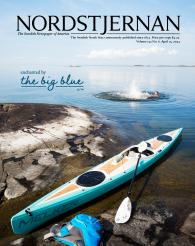It is called “sportlov” in Sweden. The week-long winter break from school that takes place during February or March (depending when Easter falls each year).
And it used to be a week, when kids took to the ski slopes or at least grabbed their ice skates and headed for the nearest rink. Sun, snow, fresh air and children with rosy cheeks. But according to research, Swedish kids are getting less and less active during their winter breaks, especially children of parents who cannot afford vacation.
Around 7 percent of all Swedes go skiing during the break; a cabin in the mountains costs at least 4,000 SEK ($600) for a family per week, add to that traveling, lift tickets and equipment. Many cannot afford it all and choose to remain in the city. Therefore the week turns into something entirely different for the kids, even a health hazard.
ADVERTISEMENT
“Sweden is fairly layered,” says Claude Marcus, professor in pediatric medicine at the Karolinska Institute in Stockholm. “There’s a large group who don’t go away on active vacations—for them the week means a lot of inactivity.” Physical inactivity leads to an increased risk for obesity. Professor Marcus leads the so-called STOPP study (Stockholm Obesity Prevention Project) at Karolinska, where researchers measure how many meters children move during the days.
“We see how children are the least active when they are off from school, like weekends and evenings. That means that during the best time for play is when children do things other than move. It’s rather grotesque.” The reason is that kids have access to many non-physical activities on computers and phones. Nothing wrong with that, but it leads to inactivity.
Professor and obesity specialist Stephan Rössner, also at Karolinska, agrees: “When I was a child there was one radio channel, that’s all. We were outdoors all the time. There was nothing else to do. Today we see two groups: Children who are good at sports (and that becomes less in numbers as they age), and the other children who don’t do anything else either.” You can’t rely on the kids to activate themselves during the break. Many municipalities offer new activities during Sportlovet, but the kids themselves have to want to go. And if the parents give them a push in the right direction, inactivity can be prevented. “Make sure to book activities. Suggest things to try. Put on your skis, go sledding, now that there’s snow. Do something, whatever you want, so that your children don’t just sit there,” says Marcus.





